water pressure question with tankless water heater
geegess
2 years ago
Featured Answer
Sort by:Oldest
Comments (17)
clt3
2 years agolucky998877
2 years agoRelated Professionals
Fullerton Kitchen & Bathroom Remodelers · Fair Oaks Kitchen & Bathroom Remodelers · Port Angeles Kitchen & Bathroom Remodelers · Pueblo Kitchen & Bathroom Remodelers · Tulsa Kitchen & Bathroom Remodelers · Princeton Kitchen & Bathroom Remodelers · Carlisle Kitchen & Bathroom Designers · Blasdell Kitchen & Bathroom Remodelers · Bethpage Kitchen & Bathroom Designers · Hammond Kitchen & Bathroom Designers · Philadelphia Kitchen & Bathroom Designers · Independence Kitchen & Bathroom Remodelers · Linton Hall Kitchen & Bathroom Remodelers · Wilmington Kitchen & Bathroom Remodelers · Canton Cabinets & Cabinetrygeegess
2 years agodadoes
2 years agoOlychick
2 years agogeegess
2 years agochispa
2 years agogeegess
2 years agochispa
2 years agoJake The Wonderdog
2 years agogeegess
2 years agoJake The Wonderdog
2 years agosushipup2
last yearJake The Wonderdog
last yearlast modified: last yeardadoes
last year
Related Stories

GREAT HOME PROJECTSHow to Switch to a Tankless Water Heater
New project for a new year: Swap your conventional heater for an energy-saving model — and don’t be fooled by misinformation
Full Story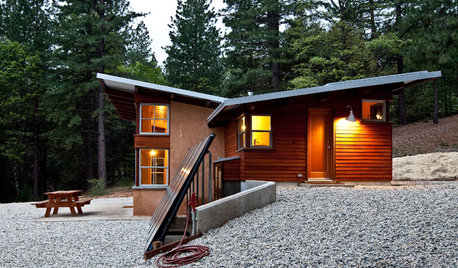
GREAT HOME PROJECTSHow to Add a Solar Water Heater
Lower energy bills without a major renovation by putting the sun to work heating your home’s water
Full Story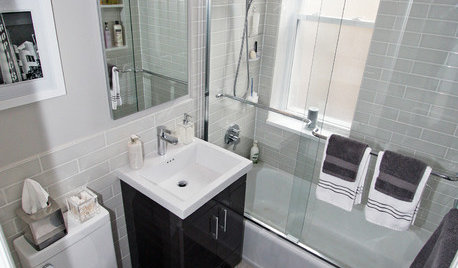
BATHROOM DESIGNWater Damage Spawns a Space-Saving Bathroom Remodel
A game of inches saved this small New York City bathroom from becoming too cramped and limited
Full Story
GARDENING 101How to Tell if Your Houseplant Needs Water
Keep your houseplants healthy by giving them the right amount of water
Full Story
SAVING WATER11 Ways to Save Water at Home
Whether you live in a drought-stricken area or just want to help preserve a precious resource, here are things you can do to use less water
Full Story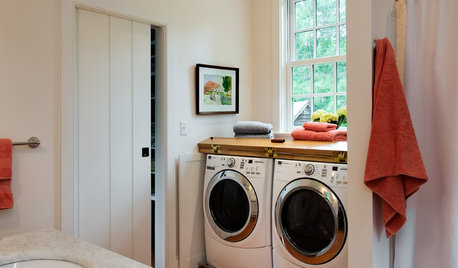
GREEN BUILDINGWater Sense for Big Savings
Keep dollars in your pocket and preserve a precious resource with these easy DIY strategies
Full Story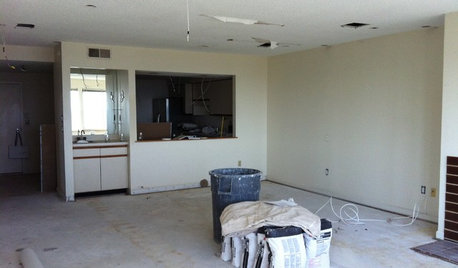
DISASTER PREP & RECOVERYRemodeling After Water Damage: Tips From a Homeowner Who Did It
Learn the crucial steps and coping mechanisms that can help when flooding strikes your home
Full Story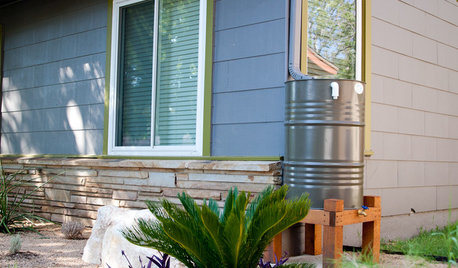
GREEN DECORATINGEasy Green: Big and Small Ways to Be More Water-Wise at Home
These 20 tips can help us all make the best use of a precious resource. How do you save water in summer?
Full Story
HEALTHY HOMEHow to Choose a Home Water Filtering System
Learn which water purification method is best for your house, from pitchers to whole-house setups
Full Story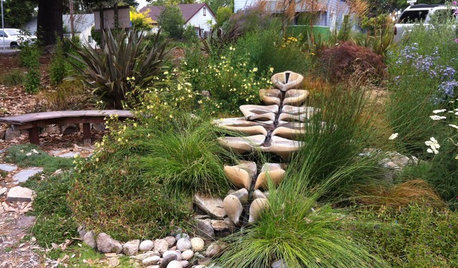
LANDSCAPE DESIGNNew Ways to Design With Water
Go beyond 3-tiered fountains and faux waterfalls to discover water's architectural possibilities
Full StoryMore Discussions








geegessOriginal Author